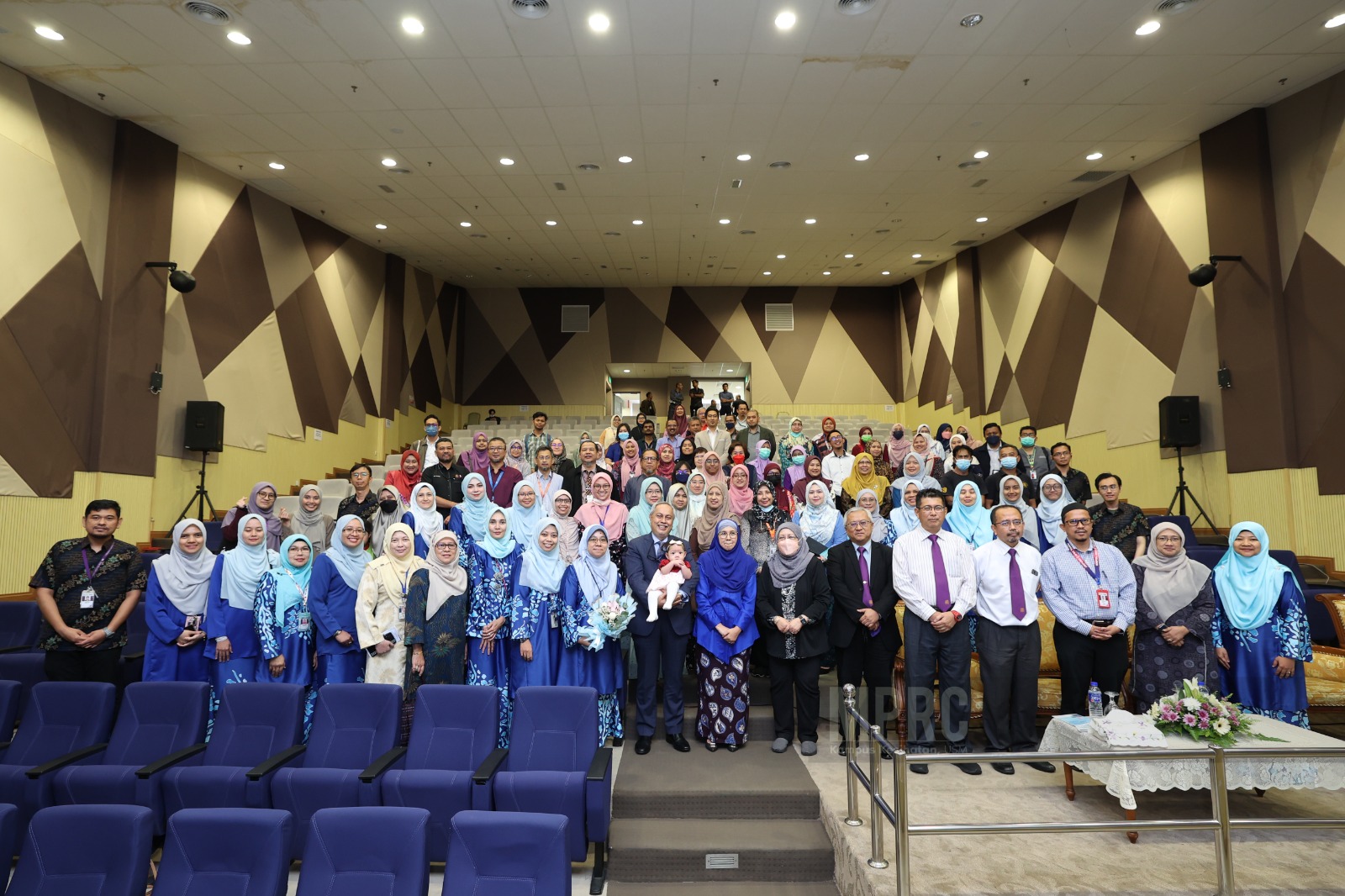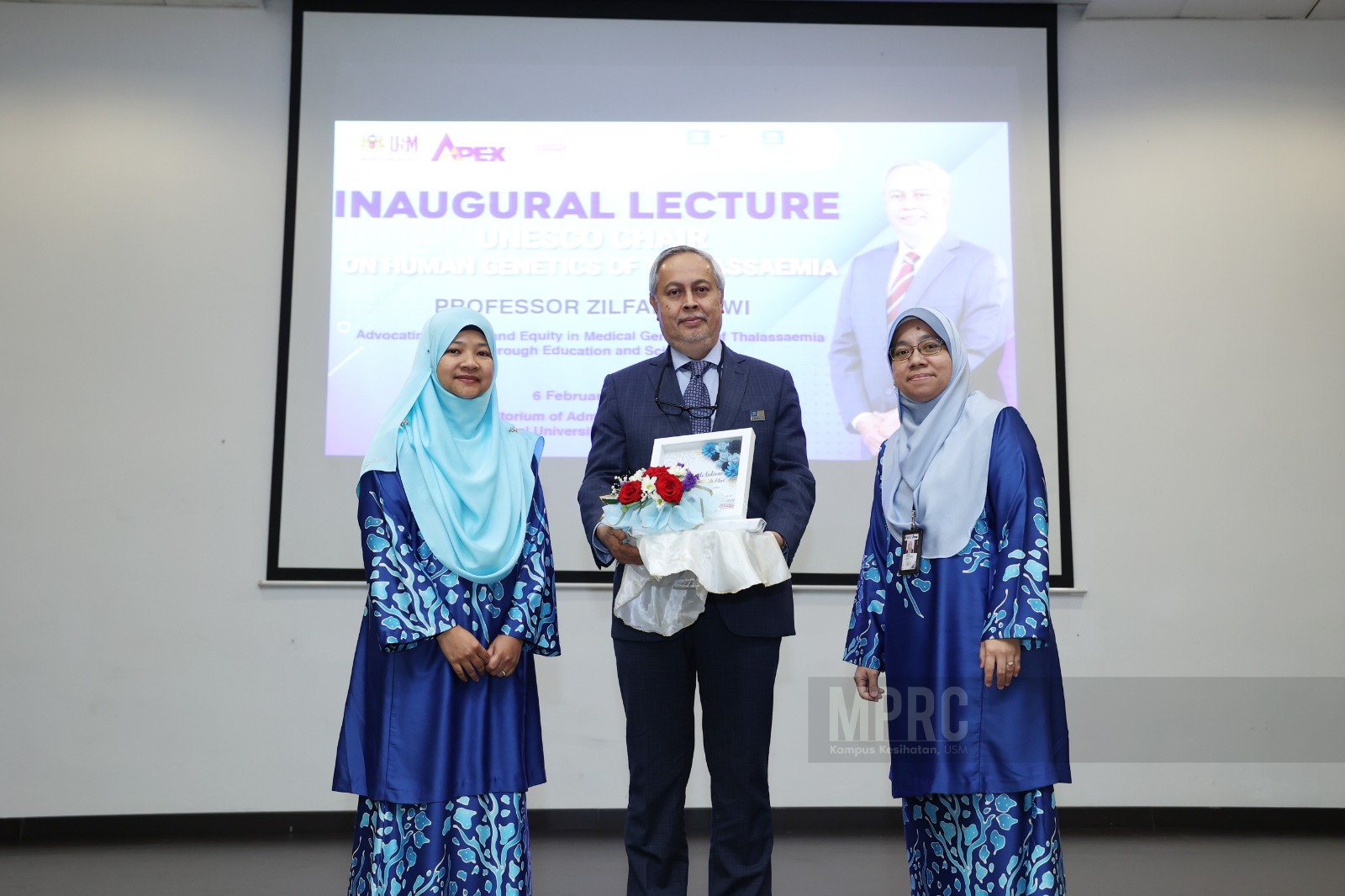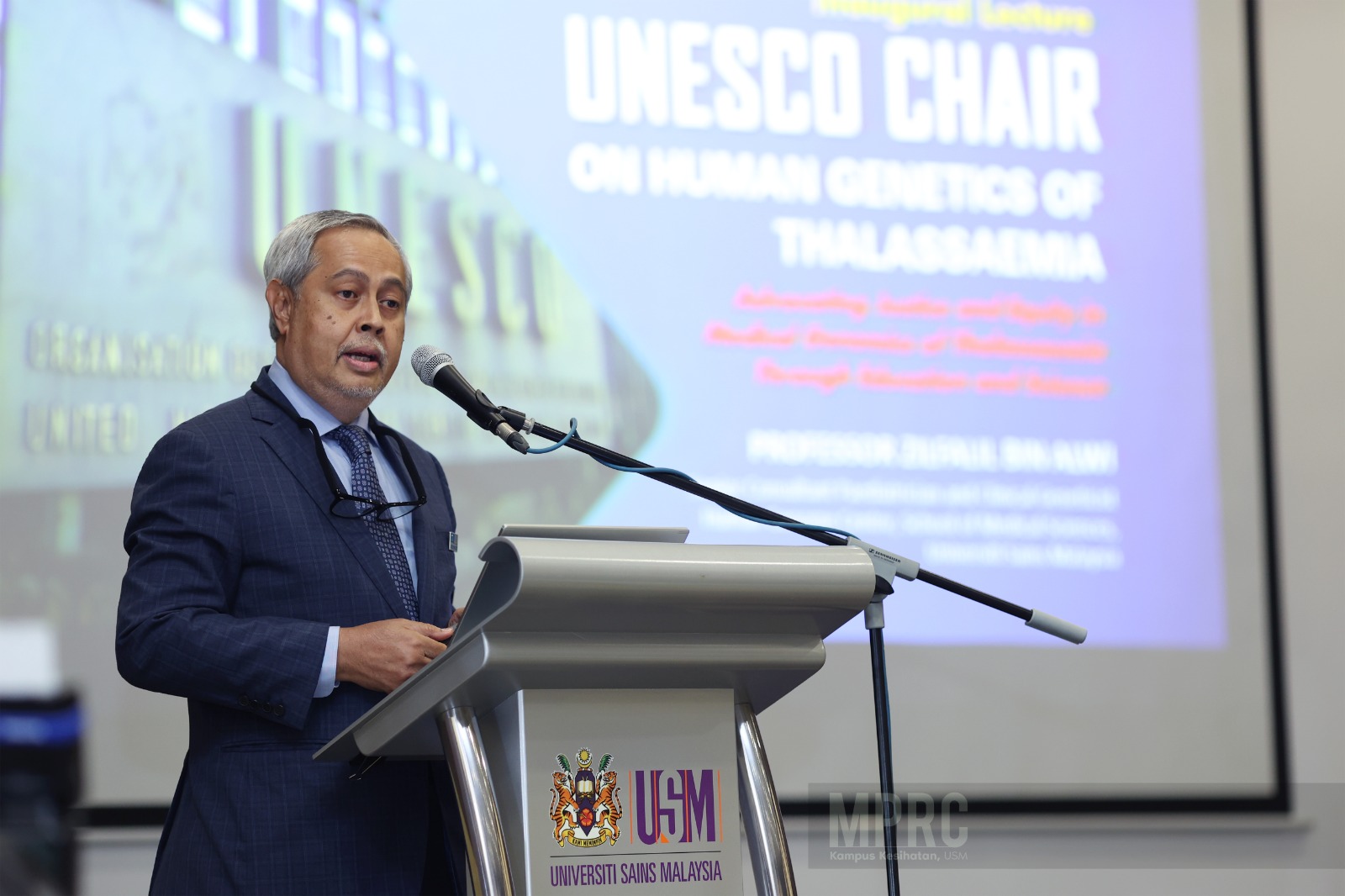USM AWARDED UNESCO CHAIR IN HUMAN GENETICS ON THALASSEMIA

KUBANG KERIAN, KELANTAN, 6 February 2023 – Universiti Sains Malaysia (USM) was awarded the UNESCO Chair in Human Genetics on Thalassemia in November 2022. It is also the first Chair in Human Genetics to be awarded by UNESCO.
Thalassemia is a genetic disorder that is often detected among populations in mostly low and middle-income countries (LMIC).
Without proper treatment, a patient with thalassemia would face many complications that could even lead to death.
A patient with a serious case of thalassemia would be exposed to serious physical, psychological and social stress as thalassemia occurs due to reduced levels in haemoglobin production, affecting either the Alpha or Beta chain.
At certain levels, thalassemia may even lead to a serious case of anaemia which could damage organs and would require a blood transfusion to ensure the patient’s survival.

According to a medical lecturer at the Universiti Sains Malaysia (USM) Human Genome Centre, School of Medical Sciences (PPSP), Professor Dr. Zilfalil Alwi, thalassemia can be divided into two, namely Alpha thalassemia and Beta thalassemia, due to differences in the genes.
“It is estimated that there are 270 million thalassemia carriers all over the world, and of which 80 million are carriers of Beta thalassemia.
“There are countries like Cyprus and Singapore that have successfully reduced incidences of thalassemia to the very minimum through effective antenatal checkups, public health programmes and optimised treatments.
“Malaysia has also conducted a thalassemia screening programme throughout the country, among secondary school students at the age of 16 since 2016 as a measure to detect thalassemia carriers,” he said when presenting a talk entitled ‘Advocating Justice and Equity in Medical Genomics of Thalassemia Through Education and Science’, at a special ceremony for the United Nations Educational, Scientific and Cultural Organisation (UNESCO) Chair here recently.
Zilfalil, the award recipient of the UNESCO Chair in Human Genetics on Thalassemia said that, one in every 20 individuals is a thalassemia carrier in Malaysia.
“The state of Sabah recorded the highest number of babies born with thalassemia compared to other states in Malaysia. However, since 2014 until 2018, the number of new births with thalassemia has continued to go down especially in Sabah, following initiatives by the government to screen secondary school students which have raised awareness among the public.
“With the decline in the number of babies born with thalassemia in Malaysia, the nationwide screening programme could become a model for other countries to ‘combat’ thalassemia.

“As a result, USM together with Universiti Kebangsaan Malaysia (UKM) and ‘Global Variome’ have established the ‘Global Globin Network’ (GGN), comprising of scientists, researchers and academics from 32 countries, who are working hard in combating thalassemia by applying the latest development in human genetics,” he said further.
Added Zilfalil, GGN is the ideal platform for international cooperation with regard to the sharing of knowledge, technical expertise and capacity-building, in addition to closing the ‘genomic divide’ between the ‘high income countries’ (HIC) and LMIC.
“This cooperation is also hoped to unite and raise the competencies and knowledge in scientific innovations that could lead to new discoveries,” he said.
The UNESCO Chair Programme was established in 1992, involving more than 850 institutions from 117 countries. Its objective was to encourage cooperation and international networking among universities in order to raise the capabilities of the institutions through knowledge-sharing and collaboration.
Higher educational institutions in Malaysia which have been appointed by UNESCO to conduct the UNESCO Chair Programme are University of Malaya (UM) (2016), Universiti Kebangsaan Malaysia (UKM) (2019), USM (2020 and 2022), and Asia Pacific University of Technology and Innovation (APU) Kuala Lumpur (2022).
The virtual ceremony was organised by the Human Genome Centre, in collaboration with the Secretariat for the Malaysian Node of the Human Variome Project (MyHVP), which were attended by the USM Vice-Chancellor, Professor Dato’ Ir. Dr. Abdul Rahman Mohamed and UNESCO Research Coordinator, Dr. Keith Holmes.
Also present were the National Science, Technology and Innovation Advisor, Professor Emerita Datuk Dr. Asma Ismail; Director of USM Health Campus, Professor Dr. Shaharum Shamsuddin; Director of USM Hospital, Professor Dato’ Dr. Nik Hisamuddin Nik Ab Rahman; and Dean of USM School of Medical Sciences, Professor Dr. Abdul Razak Sulaiman.
Translation: Mazlan Hanafi Basharudin
- Created on .
- Hits: 1300
